Luis Mendez explains why community pharmacy staff should always be willing to engage with their male customers on lifestyle changes (Erection problems) and various treatment options…
With GP waiting times on the rise and the secondary NHS care system under pressure, there is a further opportunity for pharmacy to support the general public with self-care.
The men’s health category is one category where pharmacists can play a leading role – specifically Erection Problems (EPs) where pharmacists can be key to building awareness, destigmatising the condition, and providing support and solutions for the patient.
Training for pharmacists is essential – helping them to understand how they can assist those looking for treatment whilst also breaking down barriers and normalising the conversation around EPs.
EPs are when a man regularly cannot get and keep an erection. EPs can happen to any adult man, not limited to the older generation, though they are particularly common in men over the age of 40.
EPs may happen in some situations over others and so it is increasingly important for men to speak about and identify the cause of their symptoms, particularly because EPs can often be an indication of other serious health conditions like cardiovascular disease, high blood pressure or diabetes.
If pharmacies can encourage men to seek help with their EPs, they may also be able to identify additional serious and undiagnosed conditions earlier, thereby supporting men’s health more widely.
The link between EPs and mental health issues is another example of why it is so important to break the silence and encourage society to speak about EPs to let men know that they are not alone.
In fact, the ‘Time to Raise It’ report demonstrates how high levels of uncertainty and stress during lockdown have affected more than just mental health.
Prior to the pandemic it was reported one in four men experienced EPs. This increased to one in three men being affected during lockdown. Stress levels are a huge factor which impacts on people’s physiology, specifically making it difficult for men to perform.
EPs can leave men feeling frustrated and embarrassed which only further perpetuates the issue and their stress levels. The campaign also investigated whether men might try to identify and reduces stressors in their life through discussing it with someone, more specifically their partner.
The report found that less than half of men and almost more than a third of their partners were not willing to speak or open up about EPs and the effect on their relationship.
Encouraging men to investigate solutions for their health is a difficult space. For men in the UK, ‘being in control of their own life’ is deemed as the most important construct of masculinity.
These cultural barriers leave men feeling that they must behave as if they are unconcerned about their health if they wish to publicly sustain a ‘real male’ identity.
Furthermore, behavioural barriers show that men are less likely to seek professional health advice and when they do, they tend to ask fewer questions and play a more passive role in the healthcare professional-patient relationship than women do.
EPs are usually the tip of the iceberg, often hiding many health conditions men don’t want to talk about or might not even be aware of. Conversations on EPs offer an ideal chance for pharmacy teams to also identify lifestyle changes their customers can make or steps that can be taken to manage any underlying conditions, which will not only help improve their EPs but also general wellbeing.
As the ‘Time to Raise It’ report states ‘simply talking opening about EPs can help to relive the burden’ – this is an opportunity for pharmacy with many being local and at the centre of the community and are seen as a safe and trusted place to go to for advice.
In addition, British men today are starting to become increasingly health conscious and more invested in self-care, looking and feeling good. These ‘modern’ men are starting to look for new offerings, solutions, and advice for the issues they face today such as sexual wellness, energy and vitality, heart health and fatherhood.
There are significant opportunities for pharmacy to empower men to take action and support in improving men’s health.
For pharmacy teams looking to support the men’s health agenda there are a couple of things they can start to do and implement.
Pharmacies could look to amend the term of ‘Erectile Dysfunction’ which can often sound concerning, demeaning and negative and instead look to adopt a softer approach using the terminology ‘Erection Problems’.
The term problem implies there is a solution to be found providing the man with a view that his problem can be resolved.
Additionally, the space within the pharmacy store can be adjusted to become a more ‘male friendly’ environment with changes such as having a men’s health section and proactively offering advice to anyone browsing within this space.
Pharmacy staff should be ready to advise men on lifestyle changes and treatment options with both being a starting point to opening up the conversation.
These simple changes can provide a start in reducing the embarrassment currently associated with EPs, opening up the conversation between men and pharmacists and increasing awareness of the treatment options available to start to break down the sigma and encourage men to seek help.
Luis Mendez is a senior marketing manager at Viatris Healthcare UK.








 Health Secretary Wes Streeting addresses Pharmacy Conference via video
Health Secretary Wes Streeting addresses Pharmacy Conference via video 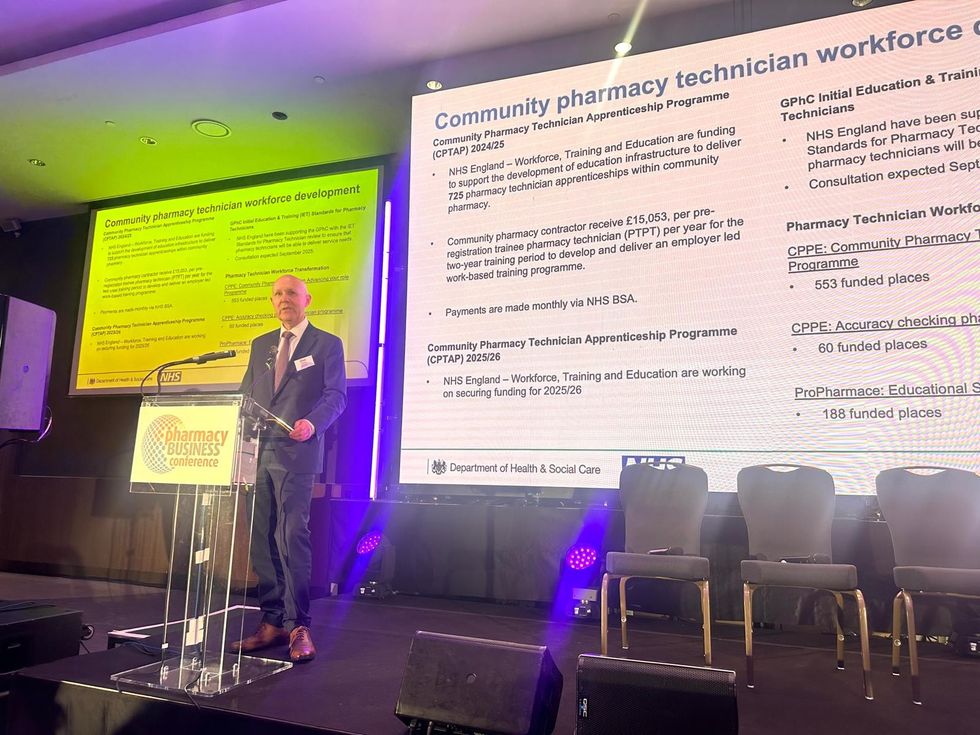 David Webb, chief pharmaceutical officer of NHS England
David Webb, chief pharmaceutical officer of NHS England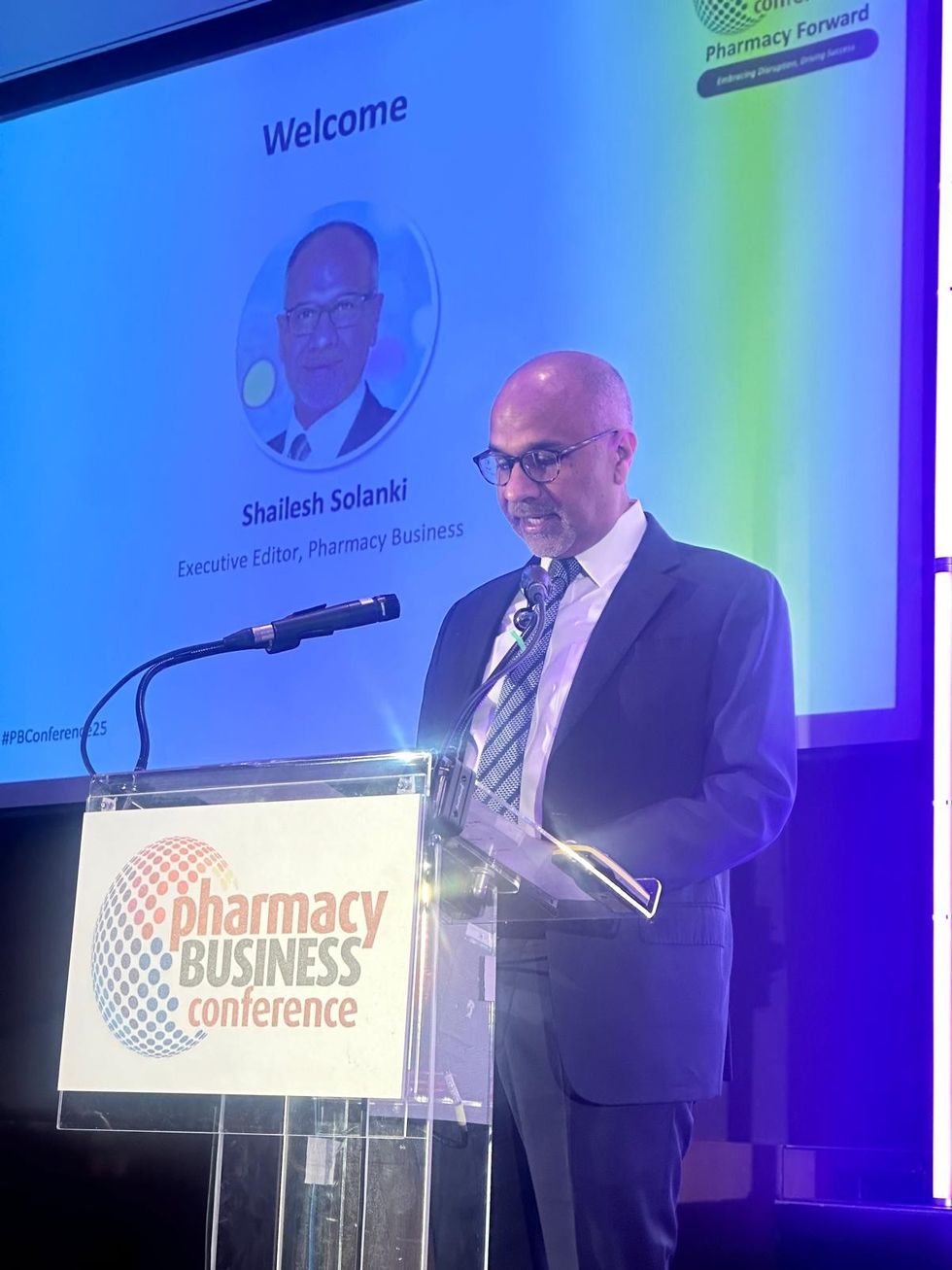 Shailesh Solanki, executive editor of Pharmacy Business
Shailesh Solanki, executive editor of Pharmacy Business L-R: Yasmin Karsan, Pritee Panchmatia and Fin McCaul
L-R: Yasmin Karsan, Pritee Panchmatia and Fin McCaul  L-R: Baba Akomolafe, Rachna Chhatralia, Patricia Tigenoah-Ojo and Raj Matharu
L-R: Baba Akomolafe, Rachna Chhatralia, Patricia Tigenoah-Ojo and Raj Matharu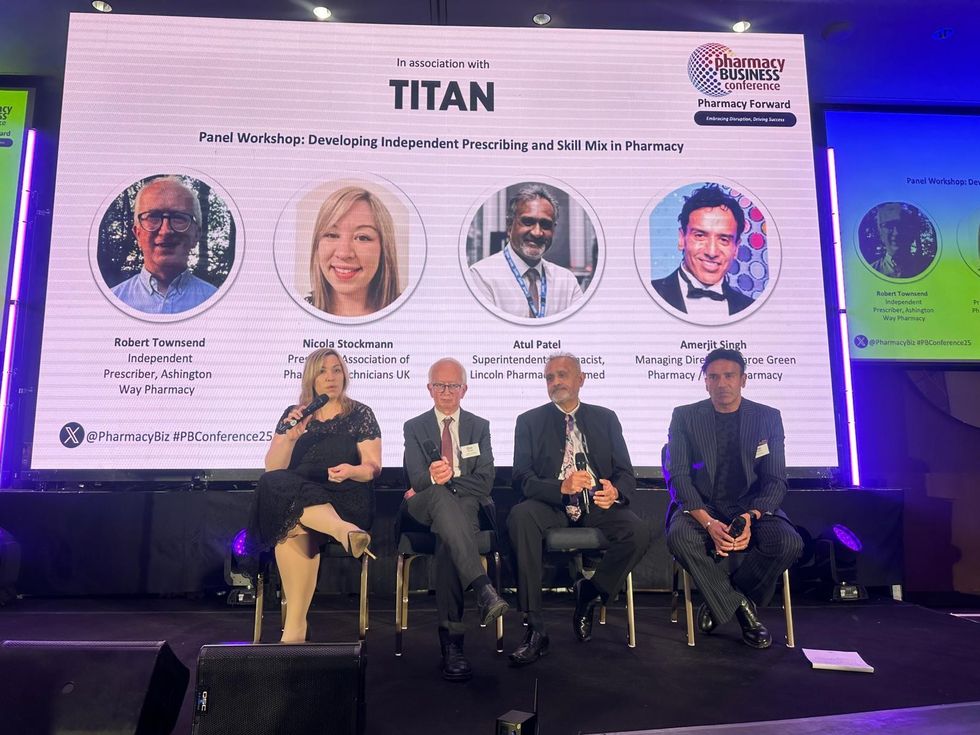 L- R: Nicola Stockmann, Robert Townsend, Atul Patel and Amerjit Singh
L- R: Nicola Stockmann, Robert Townsend, Atul Patel and Amerjit Singh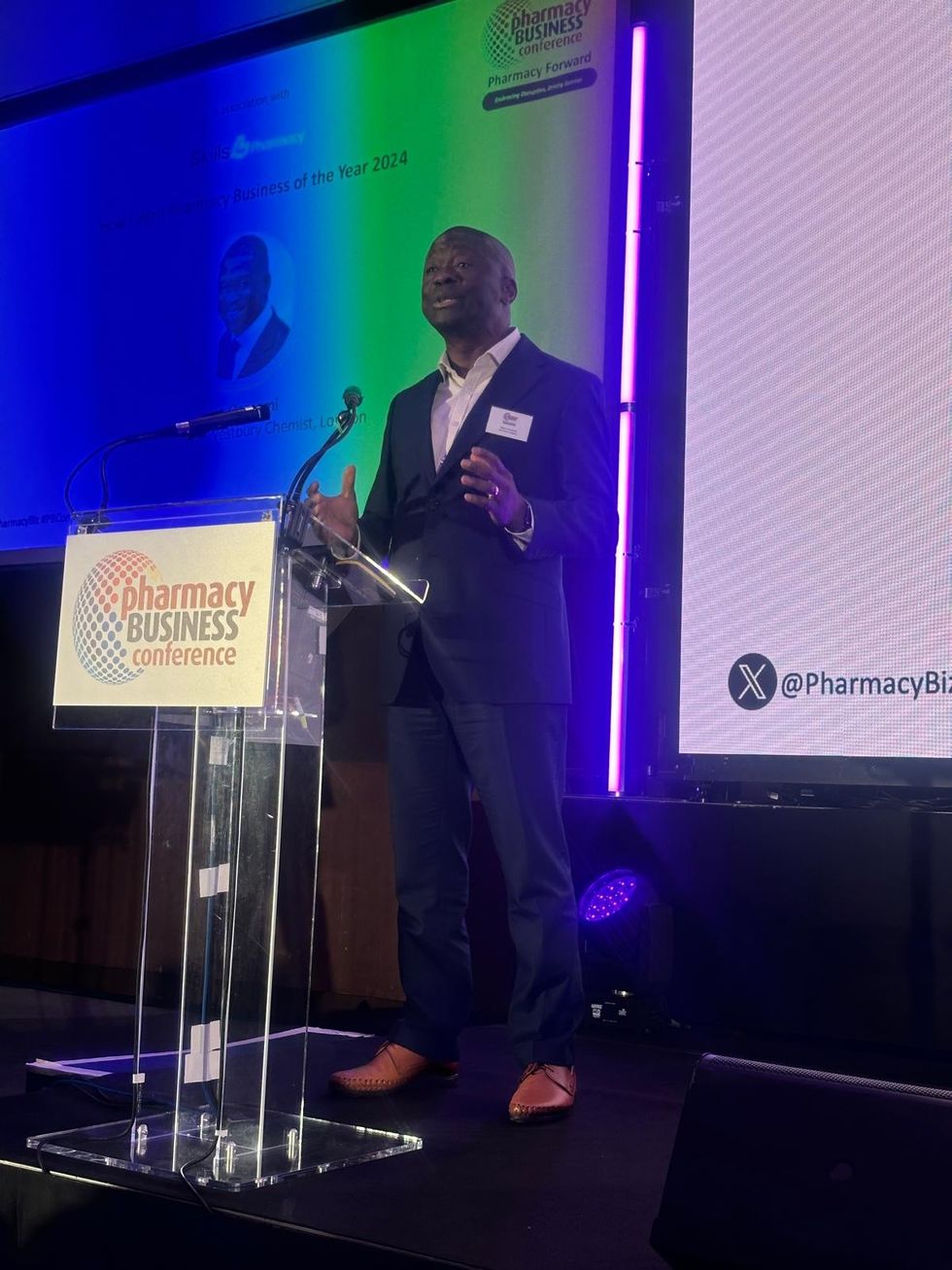 Wole Ososami, lead pharmacist at Westbury Chemist
Wole Ososami, lead pharmacist at Westbury Chemist








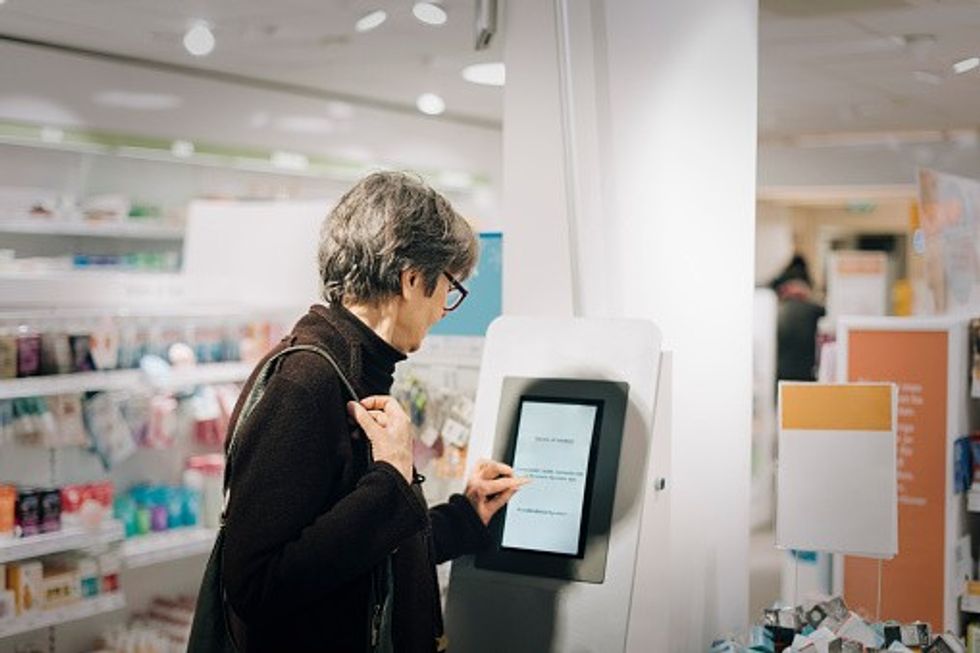 A woman using kiosk at pharmacy store gettyimages
A woman using kiosk at pharmacy store gettyimages 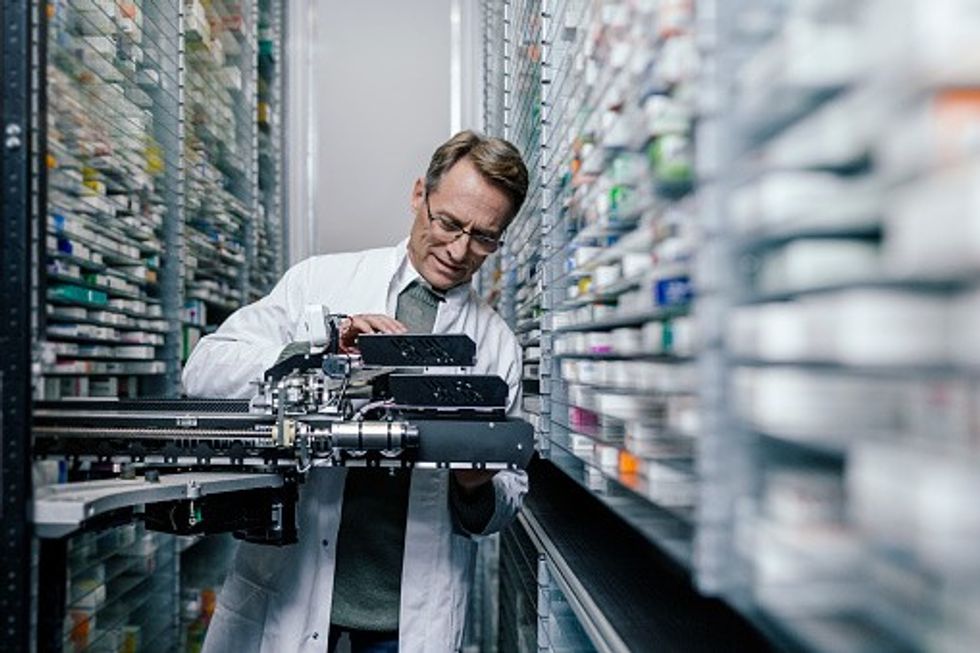 Pharmacist examining commissioning machine in pharmacy gettyimages
Pharmacist examining commissioning machine in pharmacy gettyimages